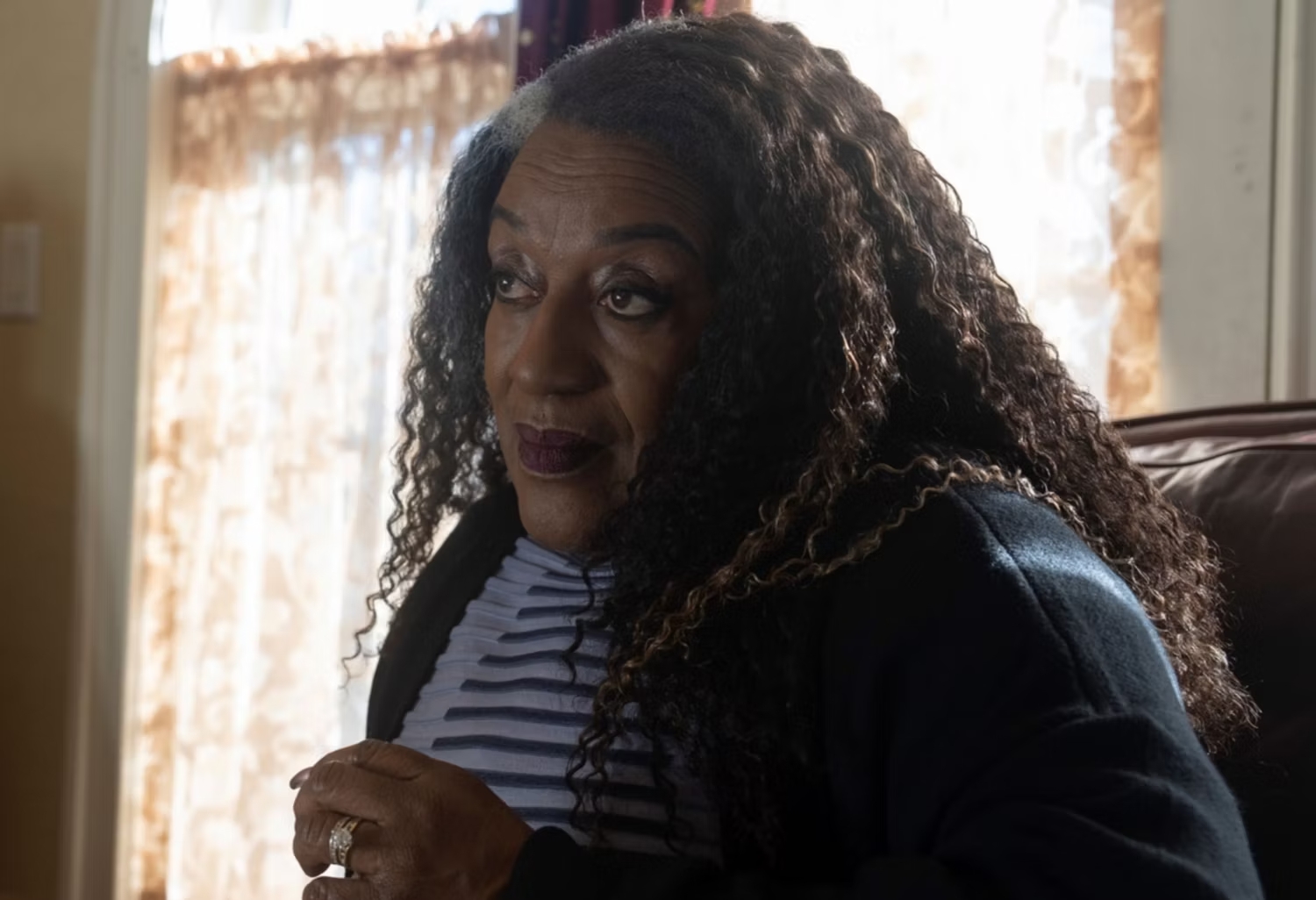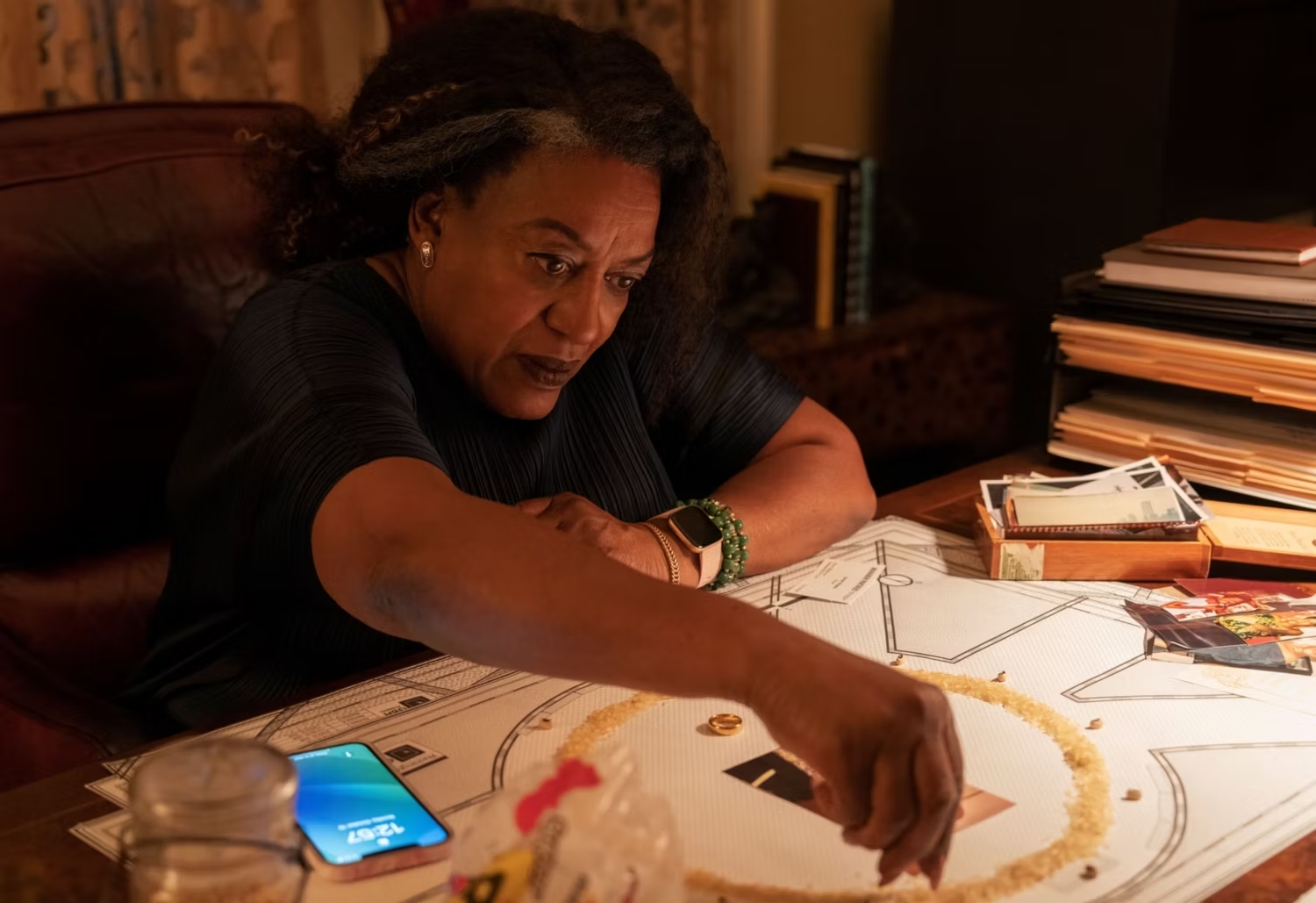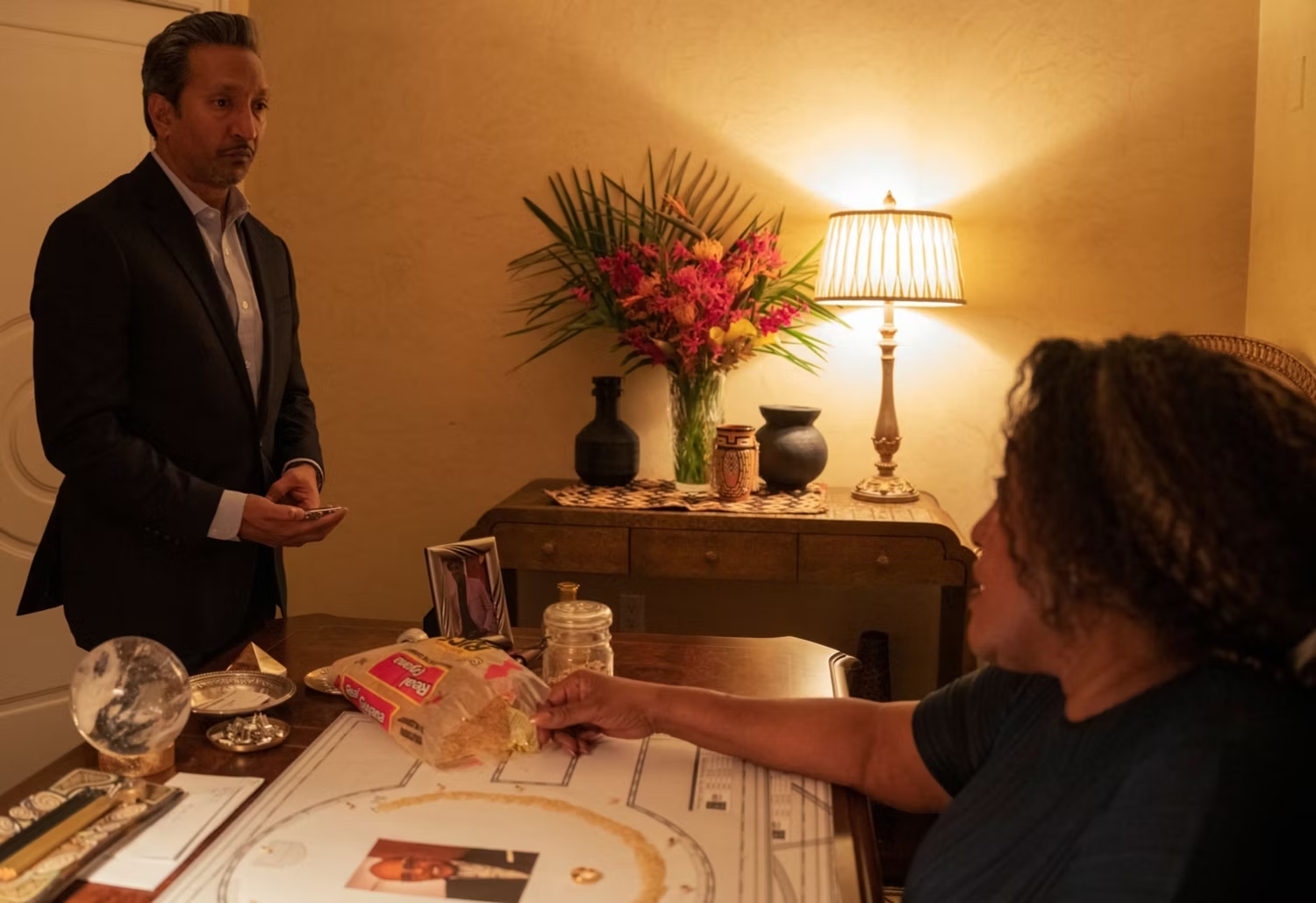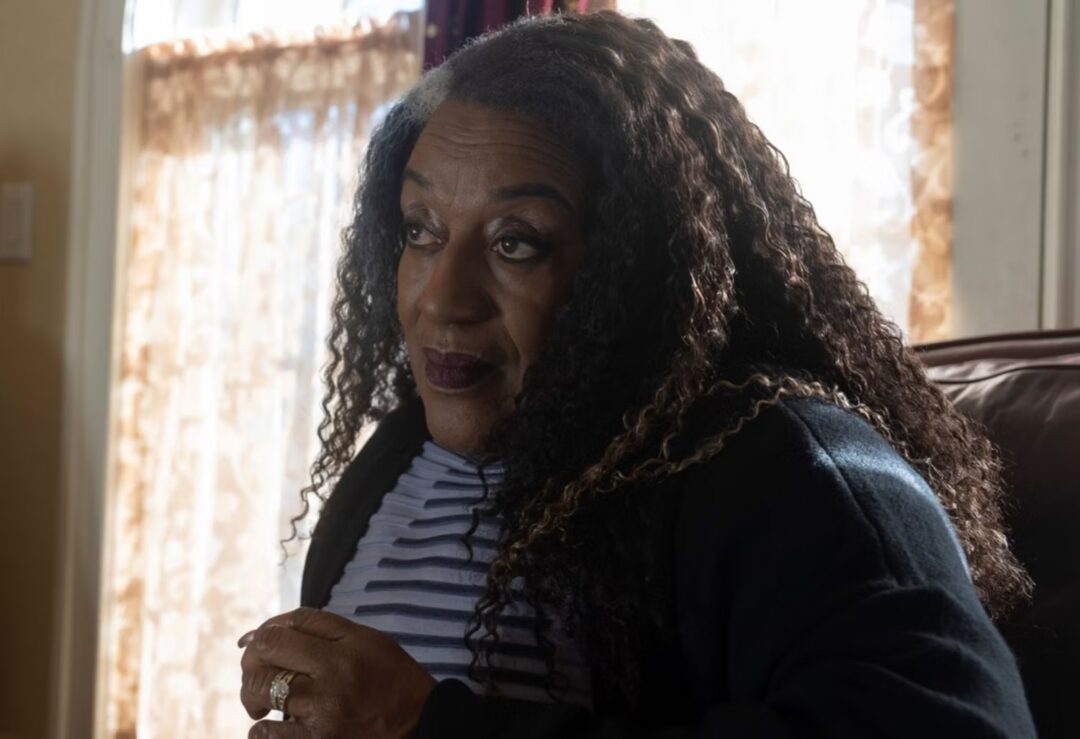She also talks about how satisfying it is to play such a complicated character, and adjusting to how quickly Steven Soderbergh gets scenes done.
From director Steven Soderbergh and writer Ed Solomon, the six-episode Max series Full Circle follows an investigation into a botched kidnapping, the individuals connected to it, and the secrets that have long been hidden. As the puzzle pieces come together, revelations make the three seemingly unrelated storylines take shape as a more intertwined crime drama that runs as deep as the ties that bind family.
During this 1-on-1 interview with Collider, CCH Pounder (who plays the mysterious Mrs. Mahabir, a Guyanese woman running a criminal enterprise) talked about developing a full history for the characters that she plays, shaping the dynamics while focusing on her specific portion of this world, how satisfying it is to play such a complicated character, why Mrs. Mahabir is such a badass, the special experience of bringing her own heritage to the Guyanese community in the story, and why it took some adjustment to when it came to working with Soderbergh.
This interview was conducted prior to the start of the SAG-AFTRA strike.
Collider: One of the things that I love about your work is that you are absolutely believable in whatever you do, in a way that seems completely effortless. I get that’s your job, and if you do your job, it’s supposed to seem effortless, but it’s one of the things that I love about watching the characters you play, whether they’re good or bad because they’re always very believable. In order for you to get there, does it have to feel very apparent on the pages of the script when you read it, or do you just have to find something that you connect to and identify with, so that you can do that work for yourself?
CCH POUNDER: It’s not always in the script, in terms of really fleshing it out. I suppose I could do a cartoon version of, “Oh, she’s just a badass,” but I like to go back and put as much history as I can together, even the history of the time, like my age and what I would have been like as a young lady. I would have been the woman behind the man. I saw her as the power behind the man, until he died and she took over. I really wanted to put all that together and hope that, when people are watching it, they get the feeling that’s what’s happening there.

This is such a fascinating character study because it’s one of those projects where, as the audience, we start not really knowing what’s going on, or how any of these characters fit with each other, and we’re trying to figure that out, the whole way through. The stories sometimes feel like they’re each in their own little bubbles, so what was that like to figure out? How did you figure out the way you wanted to shape your character, knowing that you might not even ever fully cross paths with some of the people you’re connected to in the story?
POUNDER: We never did cross paths, and only met each other at our opening at Tribeca. That was extraordinary because you forgot the list of names that you never met. You didn’t really think of, “Oh, gosh, Claire [Danes] is in this?” We were surprised to see each other. We did not have a clue. It worked in a really good way, on a lot of levels. I was working on something else and when it was finishing up, they were like, “Could you come and do this?” I decided to only concentrate on her story. I actually read the script, just concentrating on her story and the throughline for it. It was a smart move, in that kind of tight amount of time that we had, because the story was separate.
When I talked to Jharrel Jerome, he told me the same thing. He said that he read the whole script, but then focused on Aked’s world specifically because it was easier for him to take it apart and focus on his little world.
POUNDER: I actually did the same thing. I pulled her story out and made another script of just hers. And then, on top of that, what was really wonderful about the director and the writer was that the American family was recognized because they were American and they were the subtleties that they knew about an American family that did not have to be written on the page. But then, when you meet this group of Caribbean artists, they knew their people and added things that were not on the page, that really fleshed out each one’s character. That’s a really good lesson to avoid stereotypical moments.
When you first read the script, all the way through, what was your initial reaction or what were the emotions that you experienced, in learning how everything laid itself out and what everyone’s secrets were and what everyone’s fate would be? What was the first impression you had of all that?
POUNDER: I sound like a dummy, but I didn’t get it.
You’re actually not the only one in the cast who said that to me.
POUNDER: I really didn’t get it, until I actually saw it. There were a lot of visual things that I don’t think I noticed on the page. When that first bicycle rode by and there was that missed crossing of these two cultures, I was like, “Oh,” and I saw the knitting happen. Something would drop over here, and then it would get picked up again over there, and I was like, “Okay, that’s what they’re doing.” It was a wonderful surprise for me, and I have to say it was one of the first times in a really long time, where I watched the film and, as an audience member, enjoyed what I was seeing, as opposed to going, “Oh, I’m in the next scene.”

As an actor who has been in this career for some time now and worked across a variety of genres and mediums, is there something that’s still just really satisfying, in being able to say “I’m playing a very complicated woman”?
POUNDER: I’ll tell you why it’s satisfying. It’s because, if you can think of my age bracket and the genres that I’ve covered and when I started, when the doors were opening, there was always moments where I felt I had to play a very particular kind of person – the polite stalwart with a good heart – and never seeing maybe a lawyer or a judge or a police officer on film. You were always not only the bad guy, but the worthless bad guy. So, to have a role like this, it was very freeing, to be in this place where I’m still working. Finally, I can be an actor, where I can put on a big nose, and I can be evil and funny and sassy and rude. It’s really a lovely place to be.
I love the kind of bad guy, like your character, who is a good guy to some people and a bad guy to other people, and sometimes both to the same people, depending on the moment. What makes her amazing to you? What makes her a badass to you? What were the most enjoyable or interesting aspects of really getting to dig into someone like her?
POUNDER: What’s really important is that she really believes that what she’s doing is going to get the right result. She doesn’t talk about whether it’s a good thing or a bad thing, but it’s going to get the right result, and that’s what she needs for her people, or her group of people that she’s been taking care of. How she gets that is irrelevant to her. It’s like, “What do I have to do?” And if you tell her, “Okay, if you go through these motions and you go kill that boy, it’s gonna clear up everything,” she’ll be like, “All right. That’s not what I expected, but that’s what I’ve gotta do.” I don’t think she gives it a moral tick. It’s not like she says, “That sounds rough. What about the parents?” I don’t think she does that, at all. She goes, “Kill him. Let’s get this done.”
As someone who was born there yourself, could you ever have imagined that you’d get to play a character born in Guyana, and that it wouldn’t just be a passing remark in a character description, but it would actually be an important part of her story and her world?
POUNDER: You know, I was shocked. I was completely shocked. I was like, “She’s from Guyana?” That was the dangler. And then, I read it and was like, “Oh, look at this.” For five minutes, I wondered about the Guyanese people going, “Finally, we’ve got a person who’s from Guyana and is talking about it, but she’s a horrible, mean woman.” That’s probably where they’re gonna go with it. So, thank God, there’s Letitia [Wright] from Black Panther to quell all of that. We’ve got good ones and we’ve got bad ones, we’ve got fat ones and we’ve got skinny ones. It feels so grand and so freeing. I’m happy about that. When they told me that we were actually going to Guyana, I thought they must mean Key West or some place in Miami. They said, “No, we’re getting on a plane and we’re going to Guyana.” I was completely bowled over. It was a real shock to me, and it was such a pleasure, the people that we worked with. I had those crowd scenes in the marketplace, and it was just the sheer joy of people waiting in the sun, never having been in a film before and just doing it over and over again. They were absolutely happy, and I thought that was a lot of joy to bring to those people who got to do it. And it was a big talk of the town. We started something, and I have a feeling that they probably would want more and will probably go after more stories that are more diversified and fun, and not just about the turtles and the jaguars.

Your character is the center of her world and the leader of her world, and then she has Garmen and Aked, and this trio of Louis and Natalia and Xavier. What was it like to form that little world, between those characters? What did you take from working with that group of characters and actors?
POUNDER: Phaldut [Sharma] and myself were the ones that were the most enthralled because we were Guyanese people who had really worked on our accents to try to get rid of it, to blend it into American society and become American actors. And then, we had these young ones, who were born there, but they’re basically American kids They’re the second generation, so the sentiment was not as powerful for them. But because of us, and because of going to the country that they hadn’t been to since they were babies, there was a feeling of, “Oh, my God, we really get to do this.” We formed a little band of, “Wow, this is like our story,” or “My mother did this,” or “My father did that.” You had lots of things to pull from, even if it was not your story, but somebody else’s story in the group.
There’s something so interesting about your character because she does have that feel of being the matriarch, but she is also the head of this crime syndicate. How did you find that balance between being someone so mothering and nurturing, and then so ruthless?
POUNDER: Well, that’s how you see it, my dear, but I don’t think she sees it like that, at all. She’s like, “This is just the work I’ve got to do.” Because she thinks of it that way, it makes it more believable and more shocking. In a funny way, it reminds me of Michael Chiklis in The Shield. We’ve both gotten the privilege of playing the person you love to hate. He was so bad, it was fabulous. It’s been a really wonderful reaction to be like, “I can’t believe she did that.” I loved it.
How does a Steven Soderbergh project work? What’s it like to get on a set and get into the work with him? Being a filmmaker who really likes to be in the middle of what’s happening, especially when he’s holding the camera, what’s that like, as an actor? How did you find that experience?
POUNDER: Steven was a shock because he’s very, very efficient. Once he’s got it, he’s not like, “Great, let’s shoot it one more time. Let’s shoot it from another angle.” He’s like, “I’ve got it. Let’s move on.” For an actor who’s accustomed to hearing, “I love how you did that, but can you just do that again?,” it’s a bit of a shock. It was like, “Oh, we’re done. This is awesome.” And then, you’re moving on to the next thing. There was a great deal of trust in the people that he chose. I’m not saying that was every day. There were obviously things that interrupted, like sounds or horns or people shouting in the streets. We had all that regular stuff. But other than that, he was very, very efficient with the people that he trusted. That really helped. I hear that he edits, at the end of the day, so he has an idea of what to add for the next day or if the scene is complete. I didn’t have any redos, at all. What he sees in his camera, and it’s one of those cameras that look like an iPad, he either sees the story or he doesn’t, and that’s really interesting. The only other person I know who does that is Jim Cameron. He sees the story there, but even then, it’s gotta go from that into the machinery of the tech world and get redone and re-colored because they’re artificial people.
Full Circle is available to stream at Max.

